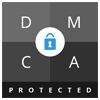New technology is arriving and going so quickly. It seems like there is a new device or gadget every week nowadays that promises to make companies and their sales reps more competitive, more responsive, and more profitable. Although some technology has proved to be more effective than others, one aspect of selling technology that is here to remain is software for the management of consumer relationships or customer relationship management (CRM). Such an application is also useful and widely used at https://motherapp.com/internet-of-things-iot-smart-airport-showcase-2018/.

- Hold a single archive all over the selling department. CRMs require all of the selling offices to hold all prospect details in a single file, for some amount of time. It makes for secure cross-team connectivity and the opportunity to handle all aspects efficiently through a shared location. CRMs allow reps to stop wasting hours searching through databases and documents to locate the details they need to follow through and close deals on prospects.
- Manage both forward-looking contact and connections. All contact should be handled via a CRM, both internal (rep to rep) and external (rep to prospect). This enables reps to monitor all aspects of the purchaser’s experience, including all contacts, texts, phone calls, and more.
- Remind yourself to push up on opportunities. A CRM monitors all of your prospect behavior and lets your reps recognize when particular prospects need to get followed up. When reps are notified of clear follow-ups, they should arrange their interaction for a period when their guidance is of higher value to a prospect. Reps, therefore, improve their odds of turning more of those leads into customers.
- Organize details on the connections. CRMs help the team to keep track of any communication (and their relevant data) quickly, irrespective of the travel stage of their purchaser. Reps should also be able to see whether a customer has ever accessed your business page, downloaded material from the internet, or spoke to any member of your selling staff.
- Customer part. Have you ever tried to build a registry of friends, or your representatives, to meet them based on clear criteria? CRMs help you to arrange communications over time through data you have collected regarding them. For instance, a rep can filter by the venue, size of a business, or stage of the contract.
- Develop records of the revenues. CRMs enable the staff to use monitoring tools such as selling dashboards and reviews to gather and coordinate details regarding opportunities and offers. This allows the reps to optimize and control their pipelines, deals, and contacts better. They will also measure their success and keep track of their objectives and progress required to meet their quotas.
Conclusion
Using a crm customer loyalty software can improve collaboration among reps, hold all prospect details in a single place, help the team create more transactions, and cultivate valuable business relationships. Start talking on how you can enhance your reps’ understanding of CRM applications and incorporate a program that will help you increase the rate of your sales and have a good effect on the result.








